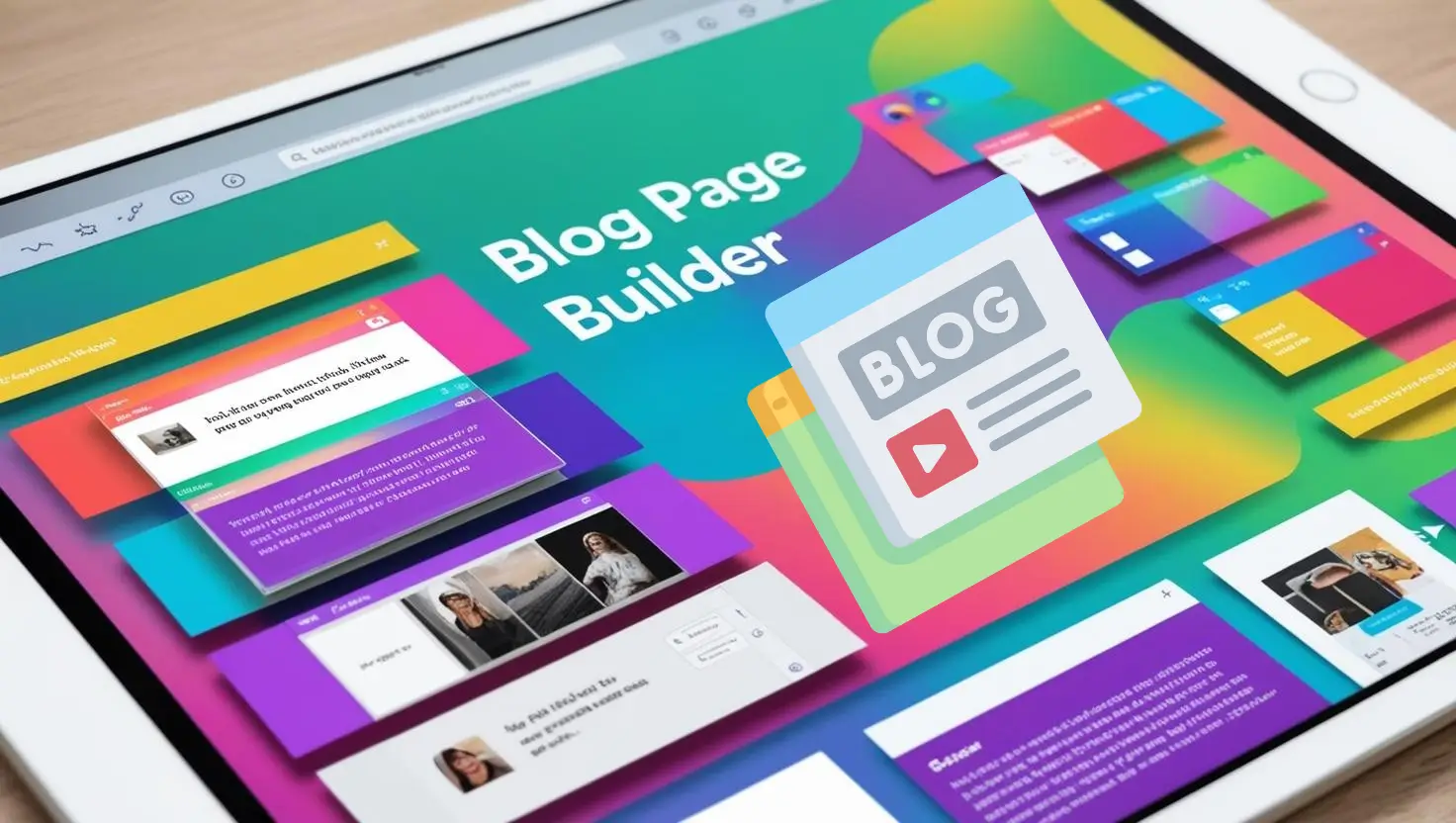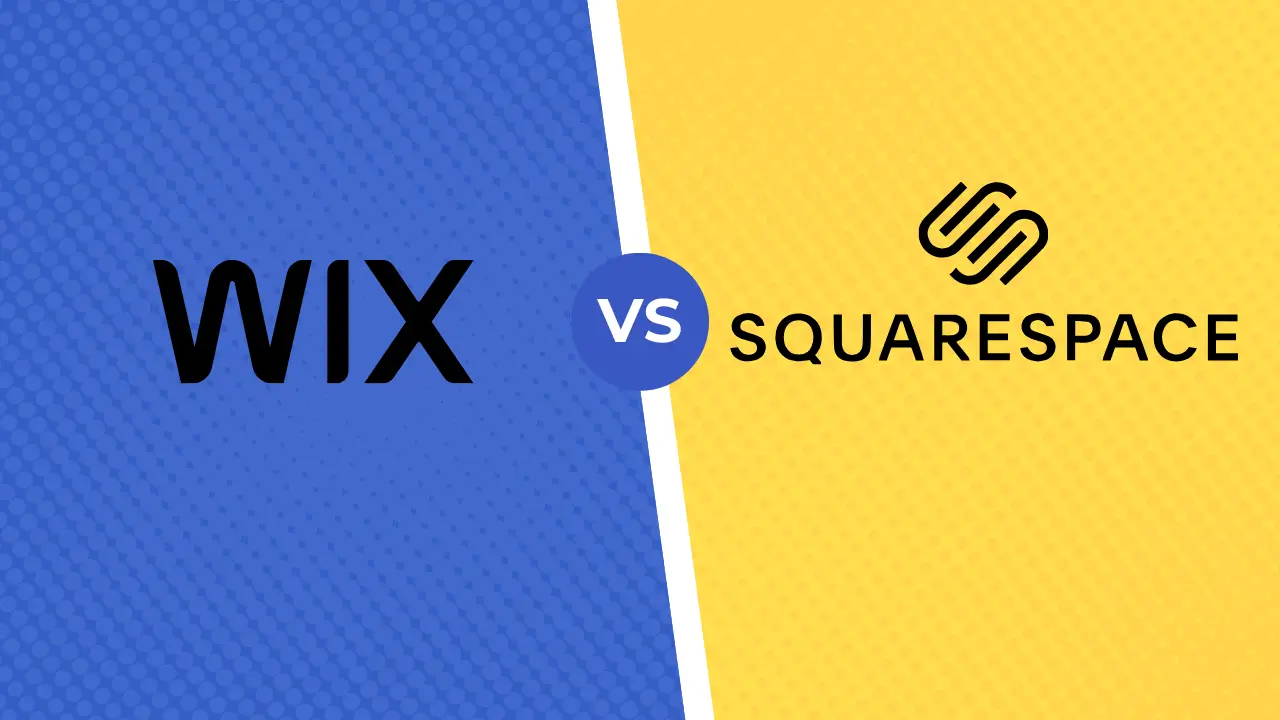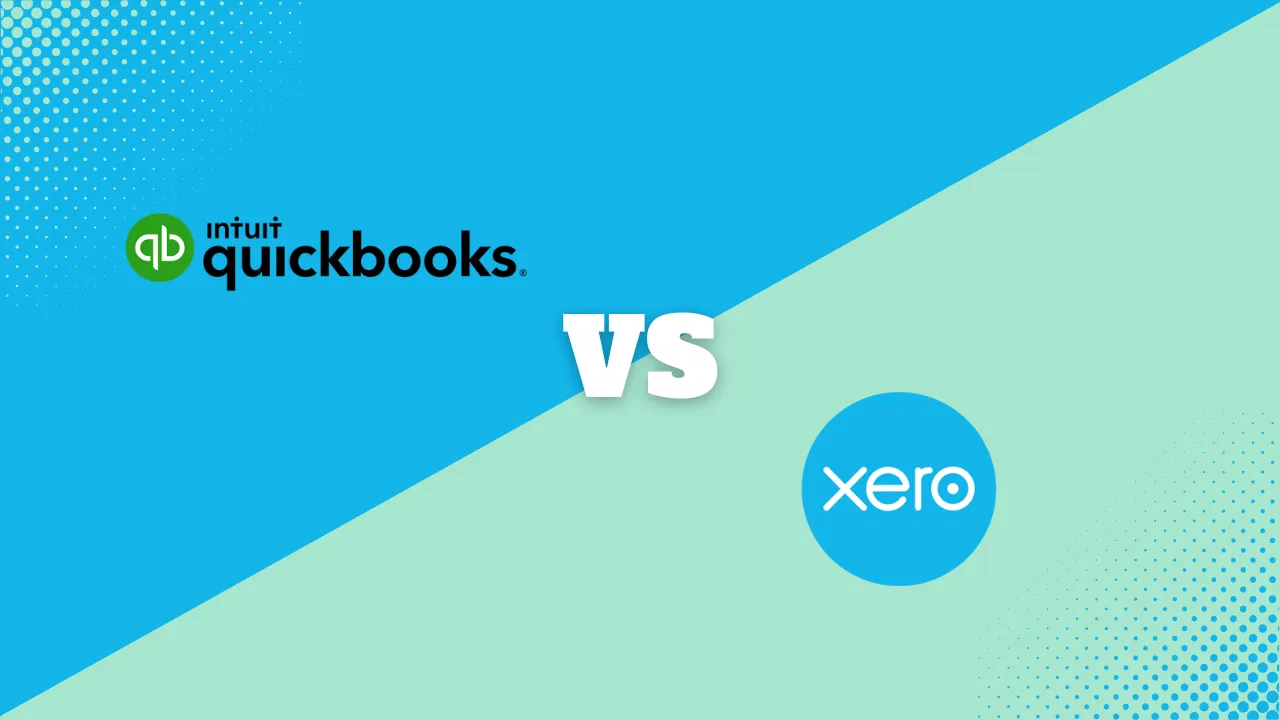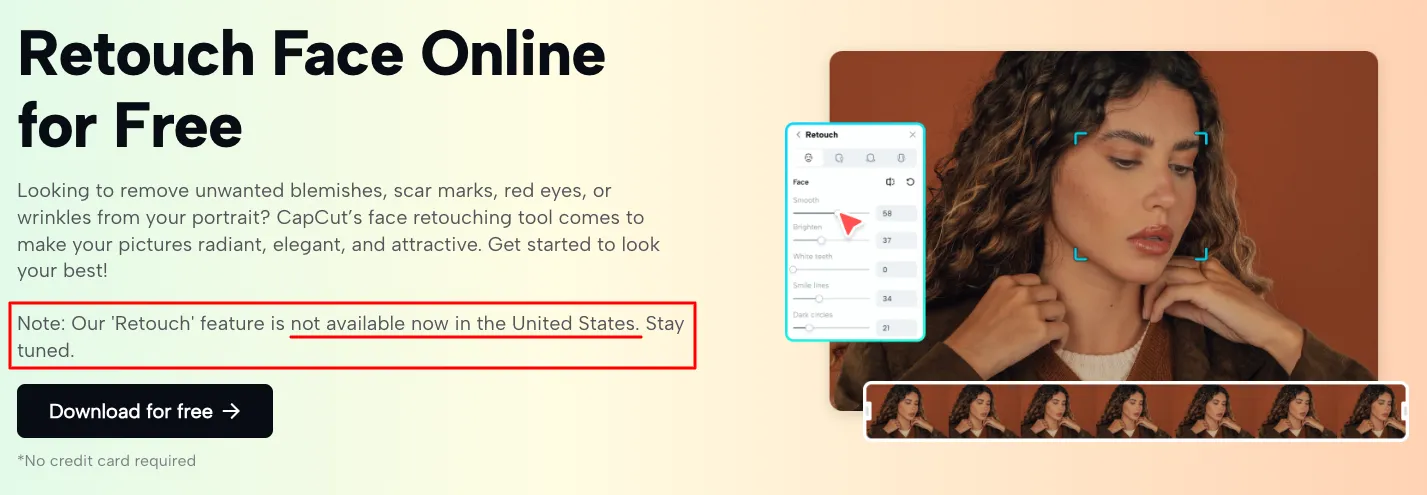Wix vs. Shopify: Which One Is Better for Your E-commerce Business?
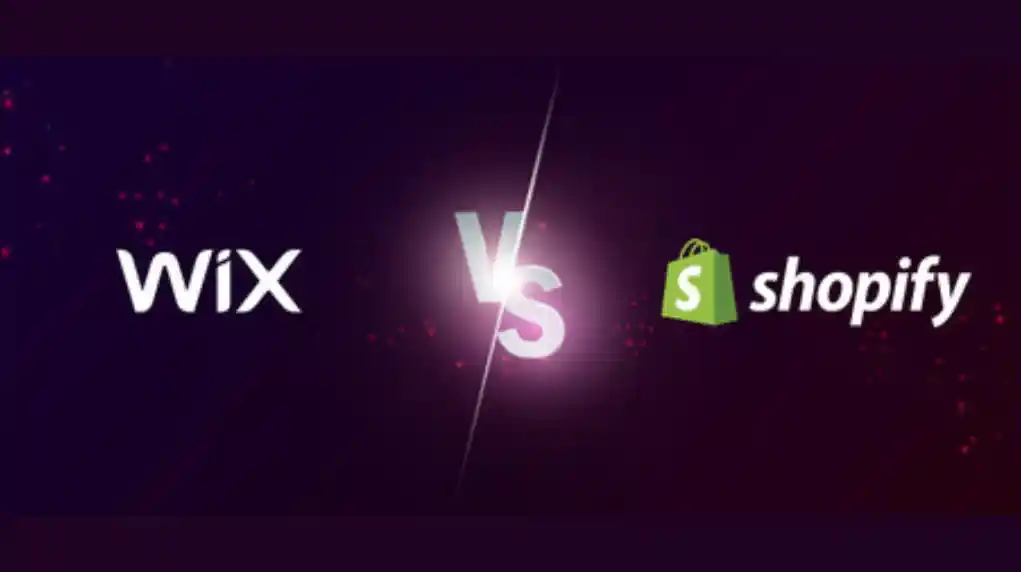
Choosing the right platform to build your online store is a critical decision. When comparing Wix vs Shopify, it all comes down to your business needs, technical skills, and growth goals. In this article, we’ll break down the difference between Wix and Shopify, covering everything from features to pricing to FAQs.
Wix vs Shopify: Quick Overview
Wix and Shopify allow you to build an online store, but they cater to different audiences and business models.
- Wix: Originally built as a website builder, Wix later added e-commerce functionalities. It excels in creative flexibility, simplicity, and lower upfront costs. It’s best suited for small businesses, service providers, and those launching an online store as part of a broader website.
Wix eCommerceAll-in-one eCommerce platformStarting from:$29 /moDropshipping-friendly
Social Media & Amazon selling integration
- Shopify: Explicitly built for e-commerce from day one, Shopify offers a powerful, scalable platform that can handle small shops to massive multi-national brands. It provides more in-depth tools for inventory management, payment processing, marketing automation, and scalability.
ShopifyCreate your ecommerce store for $1/monthStarting from:$5 /moTrusted by millions of businesses globally
Drag-and-drop store creator
When comparing “is Shopify or Wix better” for e-commerce, it depends on your long-term plans. If you want to test a small store or need a beautiful website with an attached shop, Wix might be perfect. If you’re serious about online selling and anticipate scaling quickly, Shopify is built for that.
At a glance:
- Wix: Great for beginners, creatives, freelancers, and small businesses.
- Shopify: Great for ambitious sellers, growing brands, and businesses with e-commerce as their primary revenue channel.
Quick Comparison: Wix vs Shopify
| Feature | Wix | Shopify |
| Ease of Use | Very easy, drag-and-drop | Easy, structured |
| E-commerce Features | Basic tools, limited channels | Full tools, multi-channel |
| Customization | Flexible, no coding | Deep via apps/coding |
| SEO | Good basics | Strong, advanced |
| Payment Options | Fewer gateways, higher fees | 100+ gateways, lower fees |
| Pricing | Starting from $17/month | Starting from $5/month |
| Free Plan / Free Trial |
✅ Yes | ✅ 3-day free trial |
| Scalability | Small to medium stores | Small to enterprise |
| Integrations | Limited apps | Thousands of apps |
| POS System | Basic POS | Full POS system |
| AI Features | Basic AI (design) | Advanced AI (sales, marketing) |
| Inventory Management | Basic tracking | Advanced, real-time |
| Best For | New/small sellers | Growth-focused sellers |
Wix E-commerce vs Shopify: Key Differences
1. Ease of Use
- Wix: Wix is incredibly user-friendly, using a true drag-and-drop editor that lets you place elements anywhere without restrictions. Building a storefront feels like designing a simple website — fast, visual, and intuitive. You can edit layouts, images, and products without dealing with technical settings. However, when scaling to hundreds of products or integrating complex logistics, Wix can start to feel clunky.
- Shopify: Shopify is user-friendly but operates within a structured framework designed for serious selling. The platform walks you through store setup logically: adding products, setting up shipping, configuring taxes, and optimizing payments. You won’t get as much design freedom without editing code, but everything is geared toward creating a high-converting shopping experience. Mastering Shopify’s deeper tools takes more time but offers massive long-term benefits for business growth.
Which is best for what
- Wix: Best for creators, small businesses, and service providers who want full visual control and a quick launch without worrying about e-commerce complexities.
- Shopify: Best for entrepreneurs who prioritize professional e-commerce operations, structured workflows, and have plans to scale into serious online selling across multiple channels.
2. E-commerce Features
-
Wix: Handles simple selling needs — product pages, coupon codes, and basic inventory tracking.
-
Shopify: Advanced features including multiple sales channels (social media, marketplaces), inventory sync, subscription sales, and abandoned cart recovery.
Which is best for what
-
Wix: Best for smaller catalogs and basic online stores.
-
Shopify: Best for larger catalogs and businesses that want to sell across multiple platforms.
3. Design and Customization
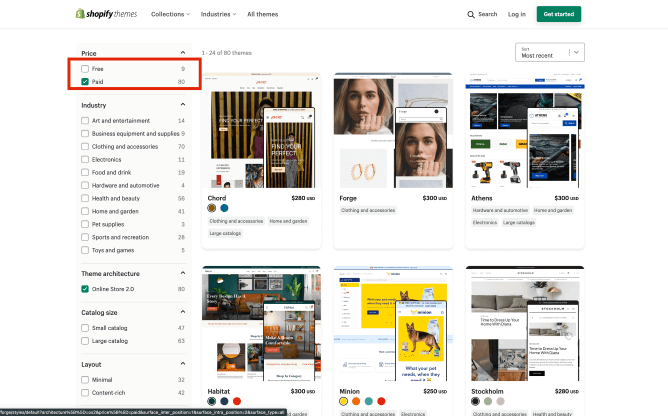
-
Wix: 800+ design templates that you can heavily customize without coding.
-
Shopify: Fewer templates but highly optimized for sales conversion, with options for custom development.
Who is best for what:
-
Wix: Best for those prioritizing creative freedom and unique design.
-
Shopify: Best for businesses focused on a streamlined, mobile-optimized shopping experience.
4. Payment Options
-
Wix: Supports major credit cards, PayPal, and Stripe. Limited integration with some payment providers.
-
Shopify: Offers Shopify Payments and over 100 payment gateways, including regional options.
Which is best for what
-
Wix: Best for businesses targeting local audiences with standard payment needs.
-
Shopify: Best for businesses with international customers or complex payment requirements.
5. Marketing Tools
-
Wix: Includes basic email marketing, simple social media ads, and some SEO guidance.
-
Shopify: Robust marketing tools — advanced email automation, integrated social selling, SEO apps, and access to Shopify’s ad retargeting networks.
Which is best for what
-
Wix: Best for simple marketing efforts with a tight budget.
-
Shopify: Best for businesses planning aggressive marketing and expansion.
6. SEO
-
Wix: Provides customizable URLs, meta tags, alt text for images, and basic SEO settings.
-
Shopify: Built-in SEO best practices, automatic sitemaps, mobile-optimized themes, and access to advanced SEO apps.
Which is best for what
-
Wix: Best for businesses needing basic SEO improvements.
-
Shopify: Best for companies wanting a serious, structured SEO strategy.
7. Store Templates
-
Wix: Huge variety of free, visually stunning templates.
-
Shopify: Professional, high-converting templates, especially optimized for mobile shopping.
Which is best for what
-
Wix: Best for businesses that want their brand to visually stand out.
-
Shopify: Best for businesses that prioritize performance and conversions.
8. Support
-
Wix: 24/7 phone and ticket support with a robust knowledge base.
-
Shopify: 24/7 live chat, email, and phone support, plus an extensive partner ecosystem.
Which is best for what
-
Wix: Best for users needing quick basic help.
-
Shopify: Best for businesses that may need expert assistance for scaling.
How Much Does Wix Cost?
-
Core: $29/month — Basic online store features.
-
Business: $26/month — Additional storage, subscriptions.
-
Business Elite: $159/month — Priority support and advanced features.
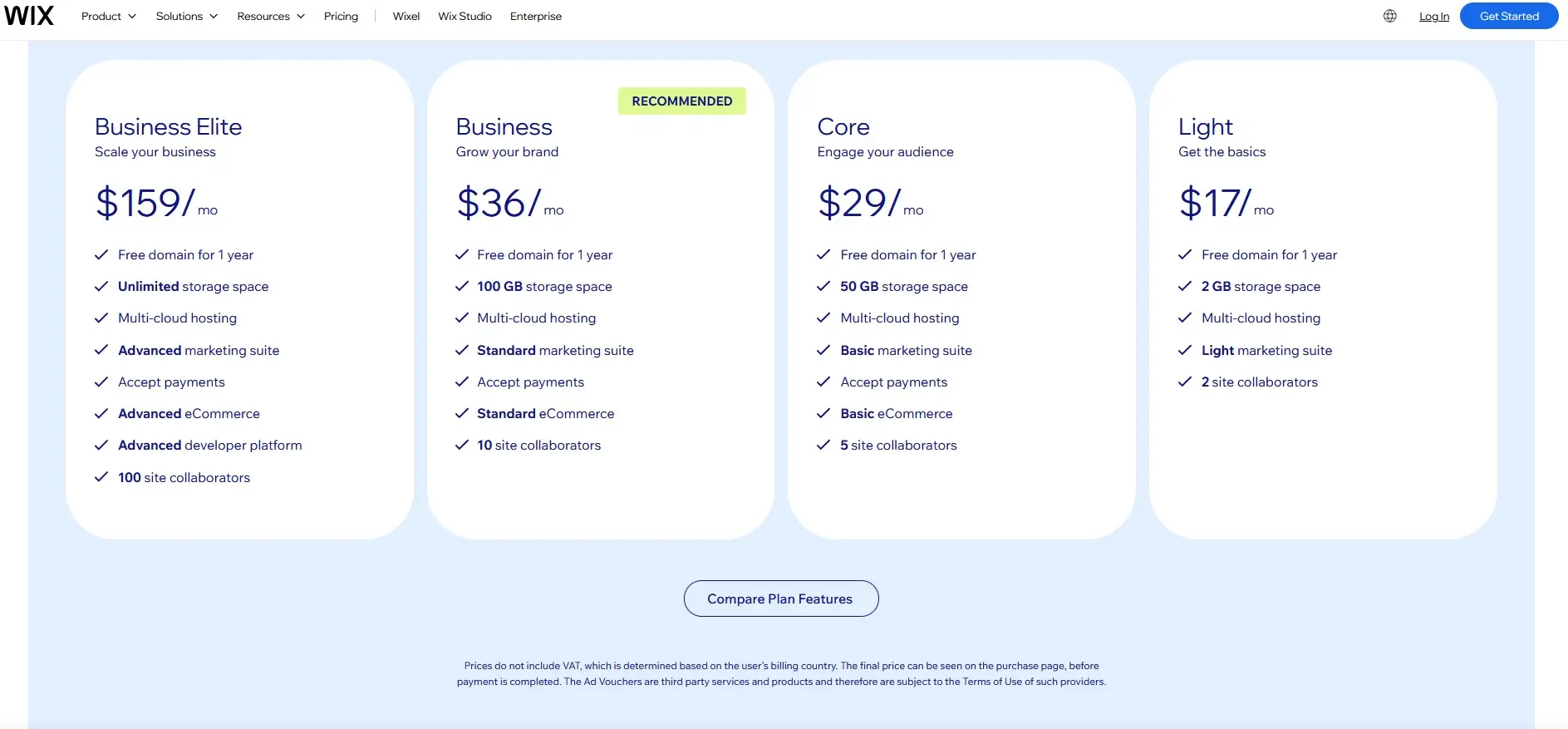
Who is best for what:
-
Budget-conscious small businesses that need a functional store without advanced sales tools.
How Much Does Shopify Cost?
- Starter: $5/month – Sell instantly through social media
-
Basic Shopify: $29/month — Core e-commerce features.
-
Grow: $79/month — Professional reports, better shipping rates.
-
Advanced Shopify: $299/month — Advanced reporting, third-party calculated shipping.
Shopify often offers promotional $1/month deals for the first three months.
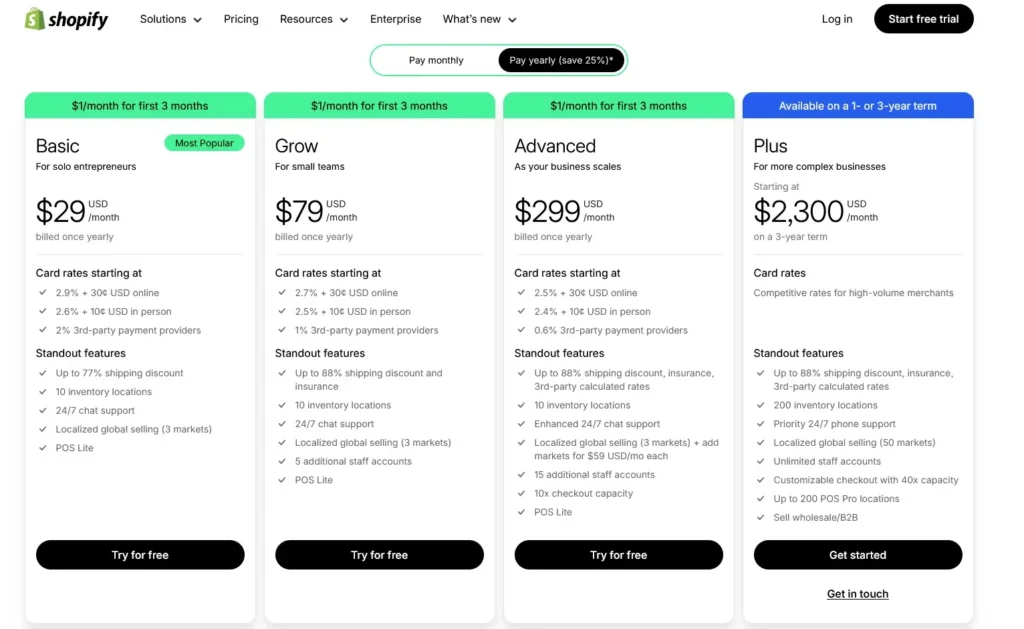
Shopify plans and pricing
Which is best for what
-
-
Growing businesses ready to invest more in powerful tools and scalability.
-
Is it possible to switch between Wix and Shopify?
Switching platforms is definitely possible, but it comes with challenges.
Switching from Wix to Shopify:
- Create a Shopify Account: Choose the right plan for your business size.
- Migrate Your Store Data: Use migration tools like Cart2Cart, or manually export/import your products, customers, and orders.
- Redesign Your Store: Shopify themes are structured differently than Wix, so expect to rebuild or rebrand your storefront.
- Configure Core Settings: Set up your payment gateways, shipping rates, taxes, and legal pages.
- Set Up Redirects: Preserve SEO rankings by redirecting old Wix URLs to your new Shopify pages.
- Test Before Launch: Check all links, checkout flows, payment processing, and mobile optimization.
- Launch Your Shopify Store: Once you’re sure everything works, go live!
Switching from Shopify to Wix:
- Less common because Wix is generally seen as a step down in e-commerce capabilities.
- If you still decide to move, you’ll need to recreate products, pages, and settings manually.
- Be aware that some features, such as Shopify’s abandoned cart recovery, multi-channel integrations, and advanced SEO options, may not transfer easily.
- You’ll likely need to rebuild and rethink your store’s structure to fit Wix’s simpler framework.
Summary:
- Switching from Wix to Shopify is popular for businesses that outgrow Wix and need a more powerful platform.
- Switching from Shopify to Wix is rare and usually only for businesses scaling down, prioritizing content over e-commerce, or seeking lower costs.
Quick Summary: Key Takeaways Between Wix and Shopify
- Wix is easier and faster for beginners with its drag-and-drop builder, while Shopify offers a structured setup better suited for serious e-commerce stores.
- Shopify outperforms Wix in terms of e-commerce features with advanced selling options, subscription models, and multiple sales channels.
- Wix gives full creative control without coding, ideal for visually-driven businesses. Shopify requires some coding for deep customization but offers superior performance.
- SEO: Shopify wins for serious SEO strategies, including rich snippets and faster page speeds. Wix is fine for basic SEO needs.
- Payment Options: Shopify provides broader payment gateway support and reduced fees with Shopify Payments compared to Wix.
- Pricing: Wix is more budget-friendly for smaller projects; Shopify offers better long-term value for scalable businesses.
- Scalability: Shopify is the clear choice for businesses with growth ambitions, supporting enterprise-level operations.
- Integrations: Shopify has a much wider ecosystem of apps and integrations for marketing, inventory, and sales expansion.
- POS Systems: Shopify’s POS is full-featured for omnichannel selling, while Wix POS remains basic and region-limited.
- AI Features: Wix offers simpler AI tools (like automatic design via Wix ADI), while Shopify integrates smarter AI features for recommendations, inventory management, and marketing.
- Inventory Management: Shopify supports large, complex inventories with multi-location stock management; Wix is better suited for small stores with limited stock.
Bottom Line:
- Choose Wix if you want an easy, affordable website with light online selling capabilities.
- Choose Shopify if you’re serious about growing a professional, scalable e-commerce business across multiple channels.
Related Articles
Shopify vs. Wix: Which Should You Choose?
- Choose Wix if:
-
🛠️ You want an easy drag-and-drop design with no technical skills needed.
-
🛒 You need a small online store connected to a blog, portfolio, or service website.
-
💸 You’re looking for lower starting costs and a free plan to experiment.
-
🎨 You prioritize creative freedom and design customization over advanced e-commerce features.
-
Wix is best for: Beginners, service providers, small stores, or anyone adding a simple shop to a content site.
- Choose Shopify if:
-
🏪 You’re building a serious e-commerce business with growth in mind.
-
🌍 You want multi-channel sales (sell on Amazon, Instagram, Facebook, etc.).
-
📦 You need strong inventory management, shipping options, and advanced analytics.
-
💡 You’re willing to invest a little more upfront for scalability and future-proofing.
-
Shopify is best for: Dedicated online stores, growing brands, or anyone serious about selling products at scale.
FAQs
What is the Difference Between Wix and Shopify?
On the surface, both Wix and Shopify are designed to help small business owners create and manage an online store without breaking the bank. Going a tad deeper into the technicalities, you might find that Shopify caters mainly to product businesses while Wix offers options that are suitable for both product sellers and service renderers.
Should I Switch from Wix to Shopify?
Whether you should switch from Wix to Shopify depends on your business needs and, of course, budget. Shopify may offer a much more sophisticated App Store for product sellers that want to scale fast but they are quite expensive.
So, if Wix still serves you well enough, I don’t see any reason why you should consider changing. But if scaling is the goal, you can give Shopify a try. In my opinion, however, service renderers are better served on Wix.
Which is Cheaper? Wix or Shopify?
Beyond reasonable doubts, Wix is significantly cheaper than Shopify. The most expensive Wix package goes for $35 per month on the Business VIP while Shopify high-end users part with $299 every month on the Advanced Plan.
The enterprise options also reflect similar price disparity. Wix starts its enterprise pricing at $500 per month while Shopify Plus draws a whopping $2,000 from your corporate wallet every month.
Which is Better for Dropshipping? Wix or Shopify?
Both Shopify and Wix provide dropshipping solutions. However, Shopify has a broader range of options for sellers to choose from.
Which is Better for e-commerce? Wix or Shopify?
E-commerce is basically trading over the internet and both Wix and Shopify provide solutions for businesses to effectively sell and buy electronically. However, Shopify is designed solely for that purpose. While Wix offers a little more than just e-commerce tools, its solutions are not mediocre in any way.
Is Shopify Easier to Use than Wix?
Hard to tell whether either of these solutions is easier to use. Shopify provides a lot more app integrations for its users than Wix but the design interface on Wix is more intuitive and user-friendly.




